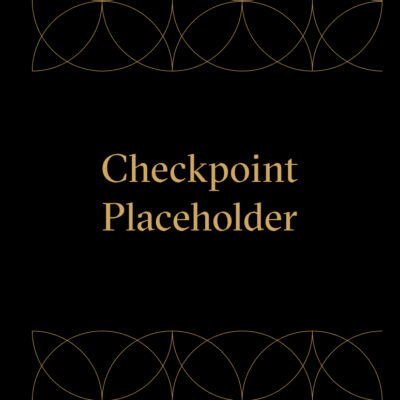
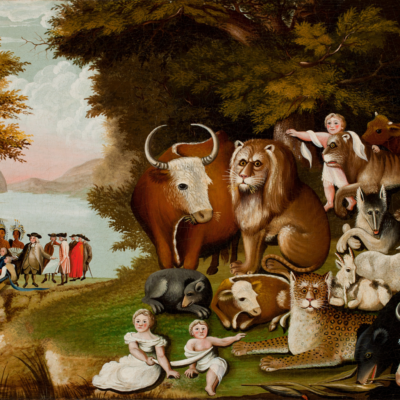
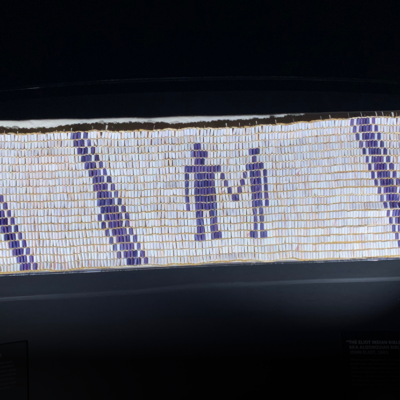
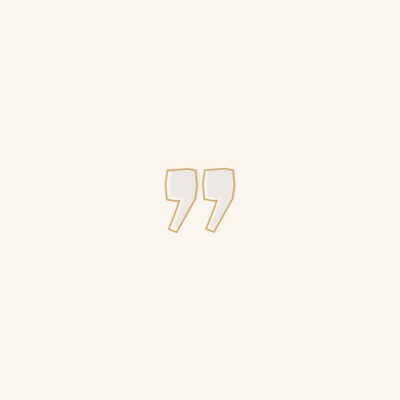
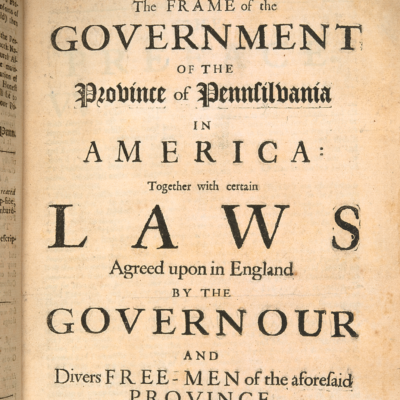
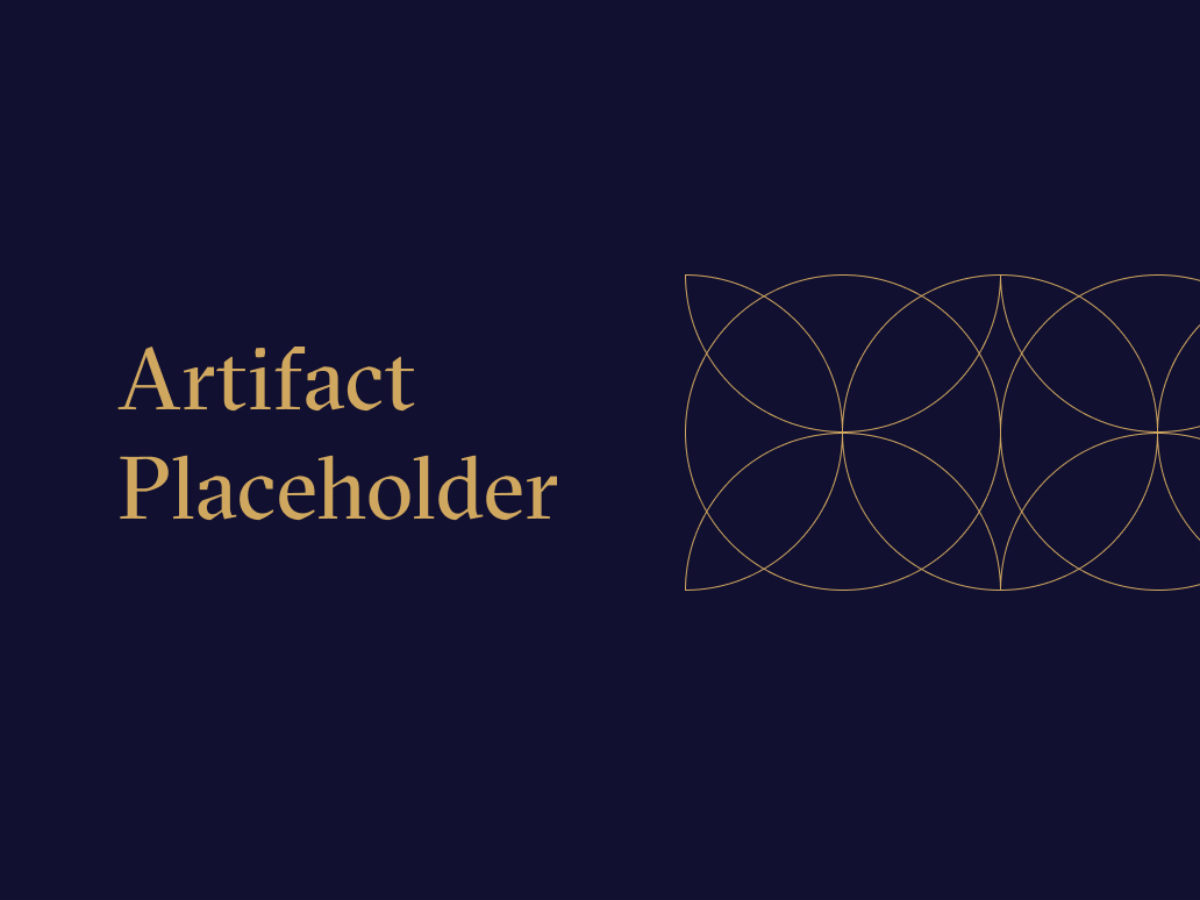
Credit: Brian Hunt & Pennsylvania Capitol Preservation Committee
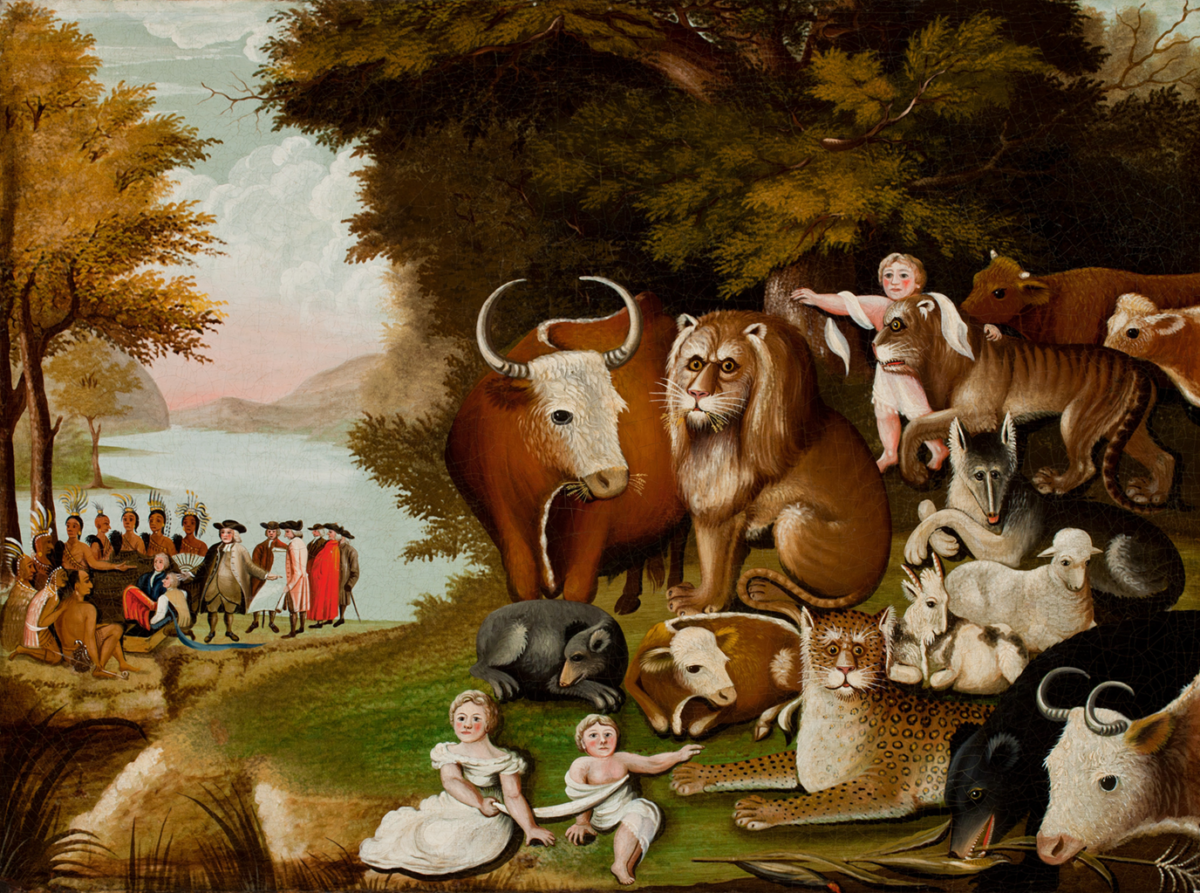
Worcester Art Museum, Massachusetts, USA / Bridgeman Images
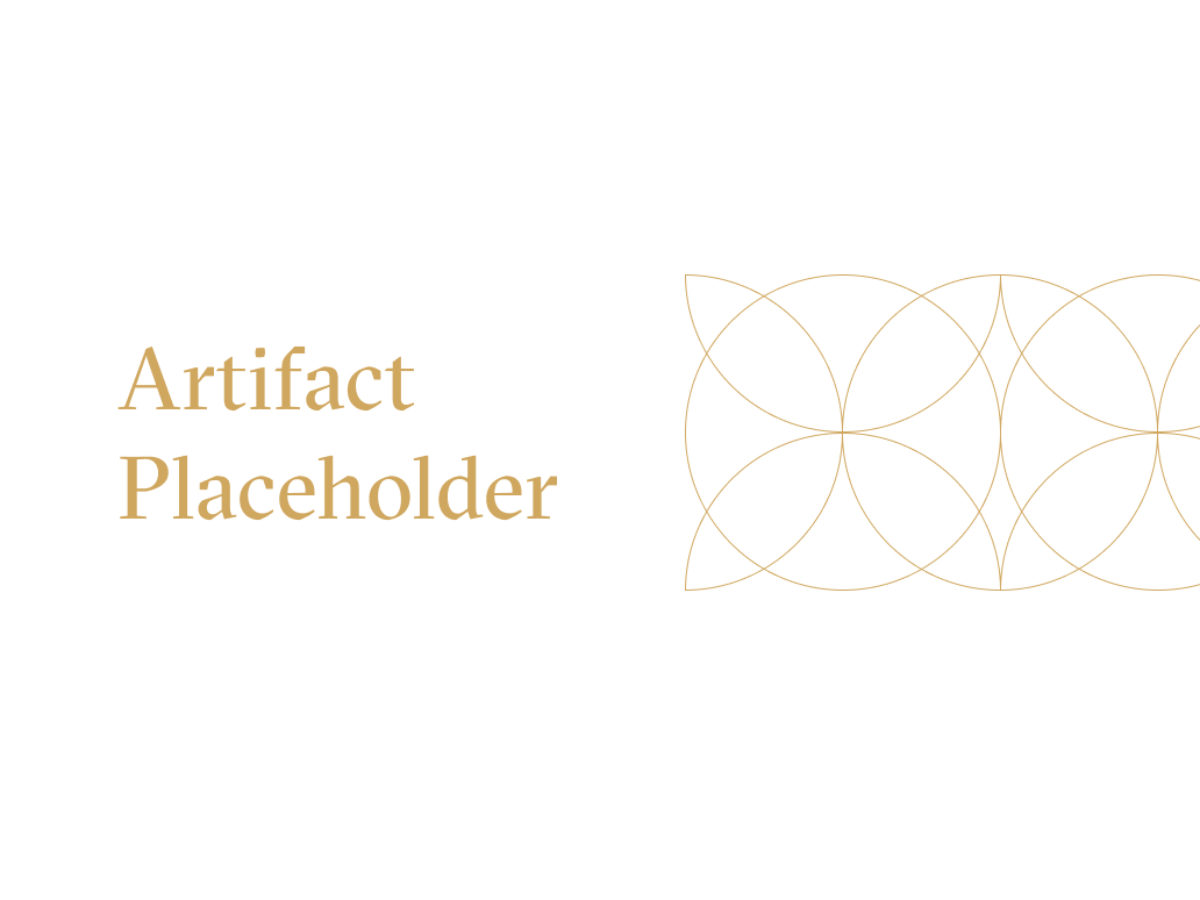
Quaker & Special Collections, Haverford College, Haverford, PA

Pennsylvania Academy of the Fine Arts, Gift of Mrs. Sarah. Harrison (The Joseph Harrison, Jr. Collection)
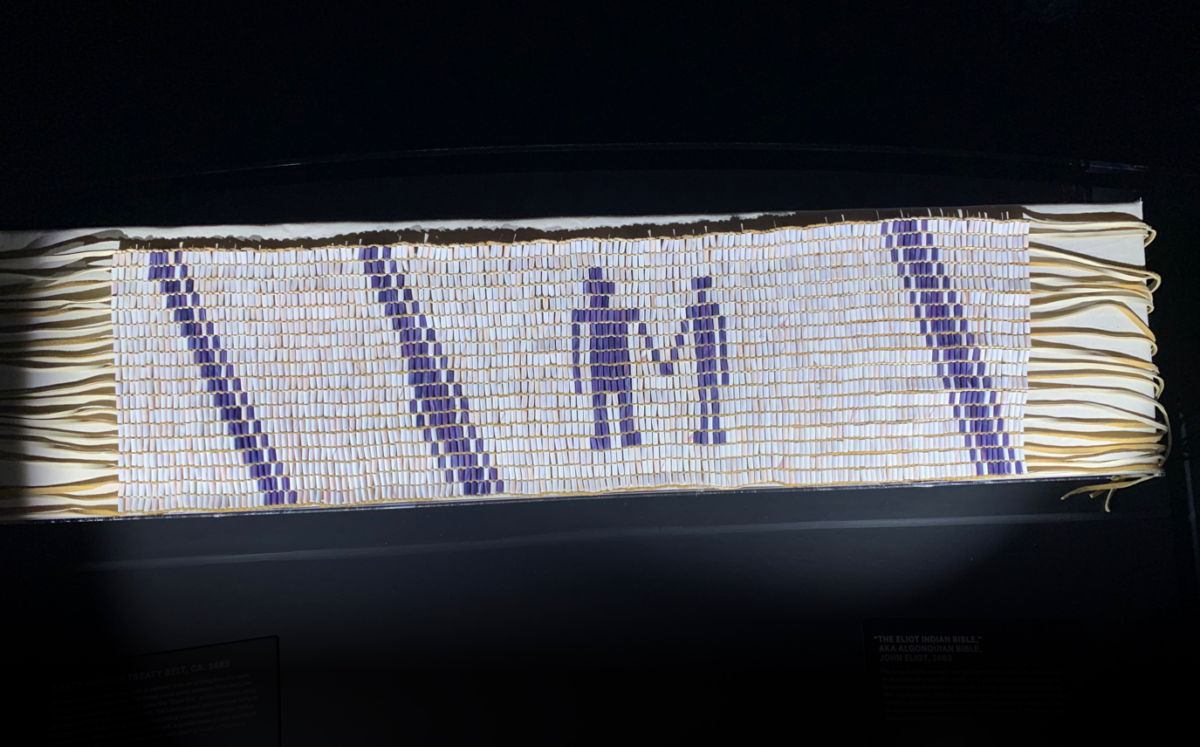

Brian Hunt & Pennsylvania Capitol Preservation Committee
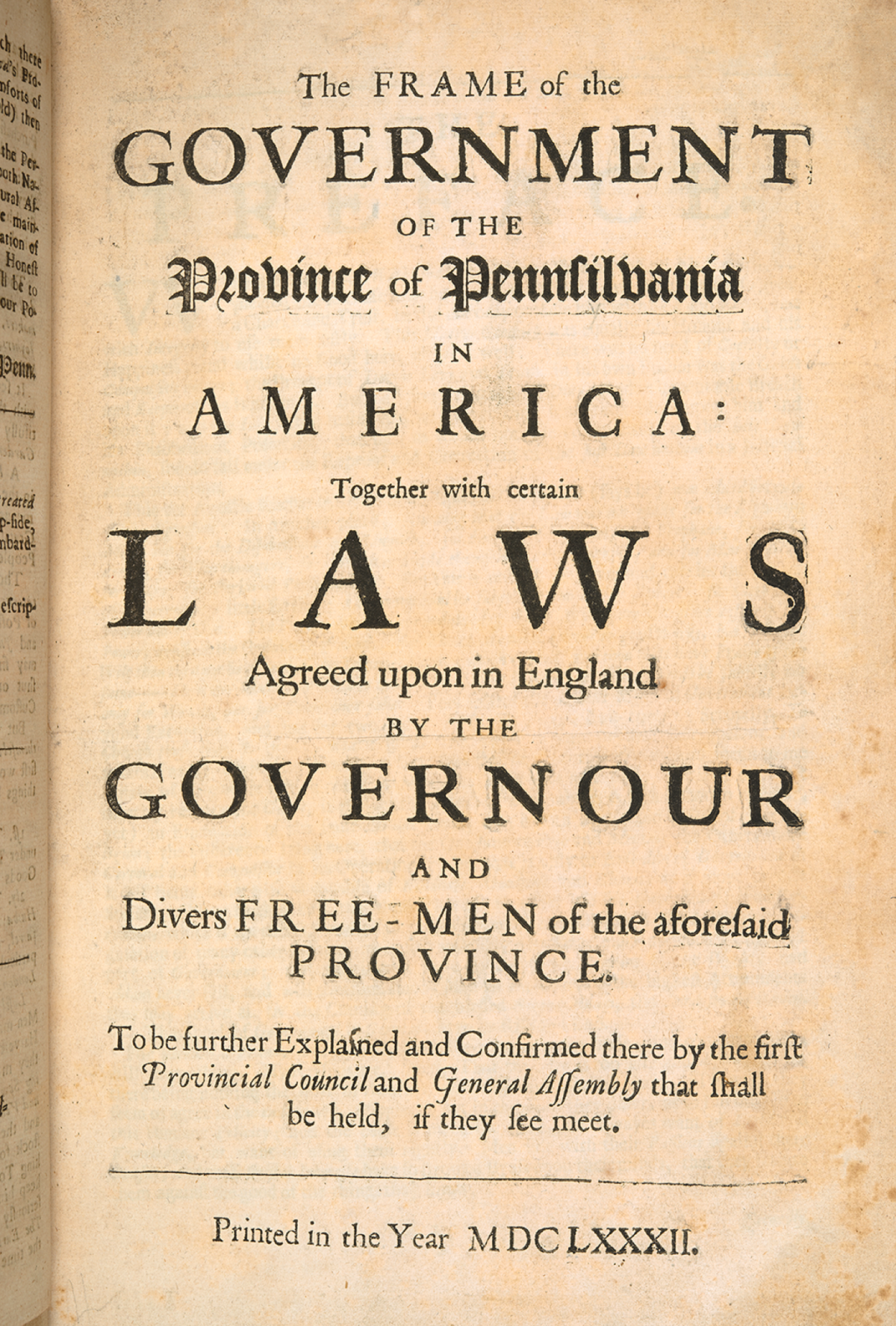
GRANGER

Smithsonian American Art Museum, Museum purchase through the Robert Tyler Davis Memorial Fund


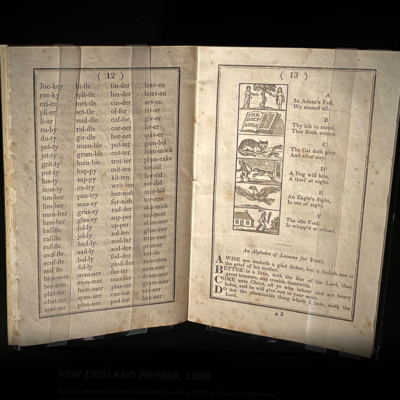

Bolton Library & Museum Services, Bolton Council

Stephen Butler / Adobe Stock

Library of Congress

Rischgitz / Stringer / Hulton Archive via Getty Images

Presbyterian Historical Society, Presbyterian Church, Philadelphia, Pennsylvania, USA

Princeton University Archives, Department of Rare Books and Special Collections, Princeton University Library

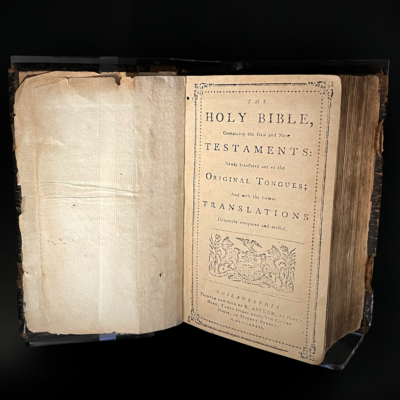
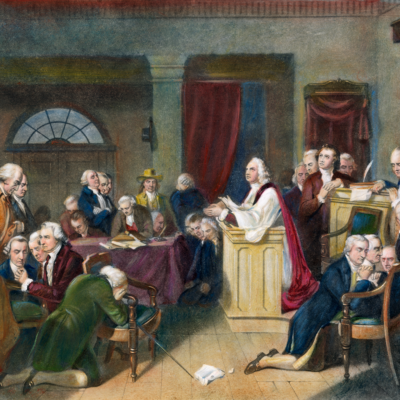
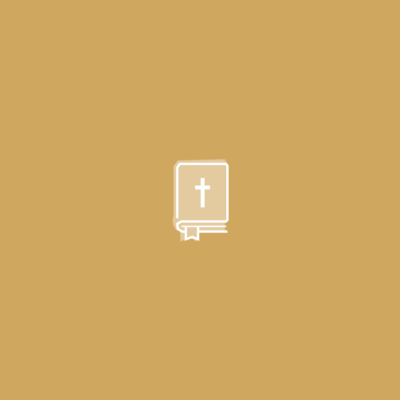
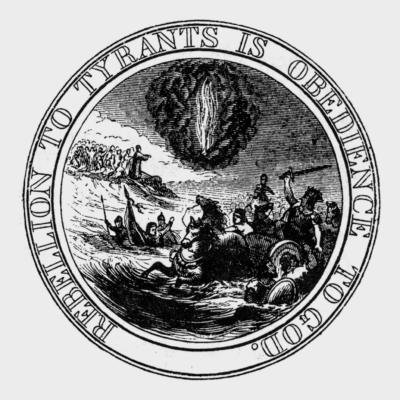
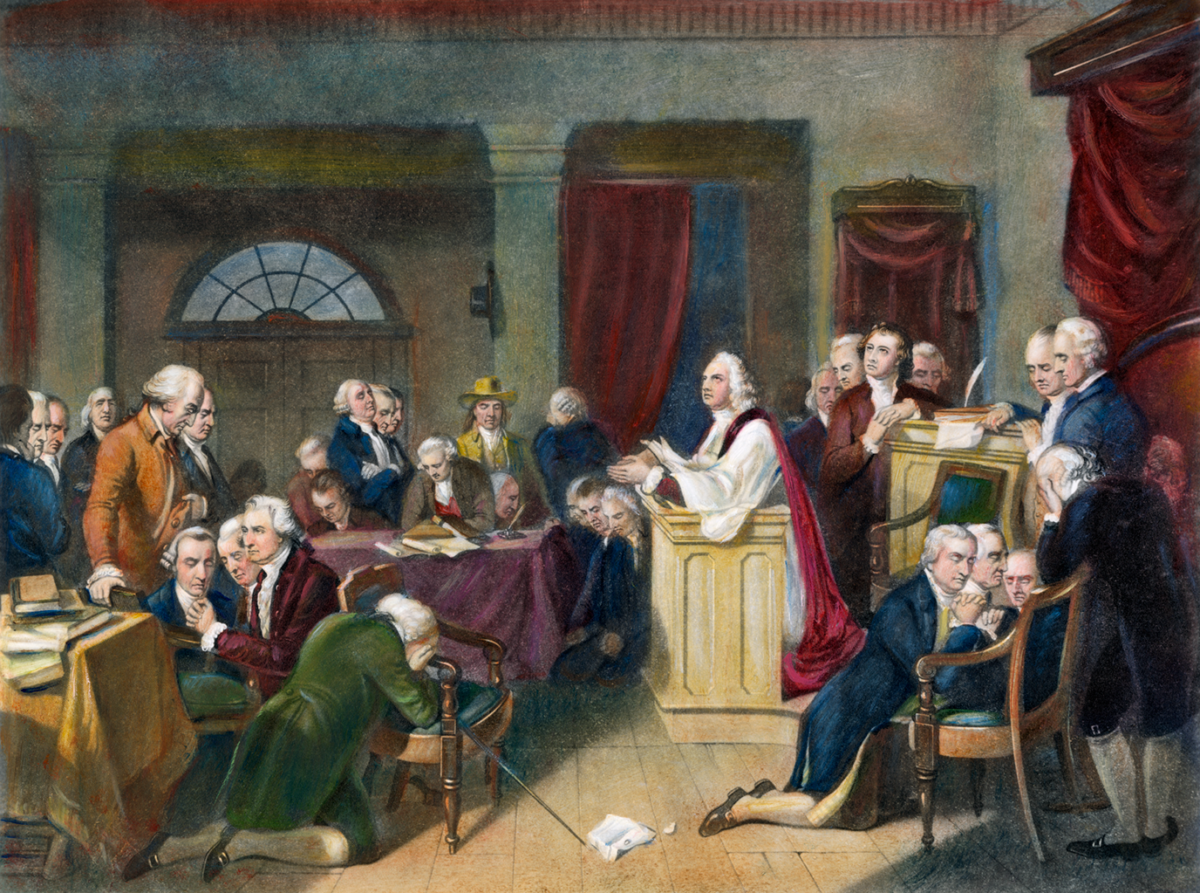
GRANGER

The Trustees of the British Museum

Christ Church, Philadelphia

Watercolor once in possession of Edward W. Richardson

Henry Alexander Ogden / Public Domain
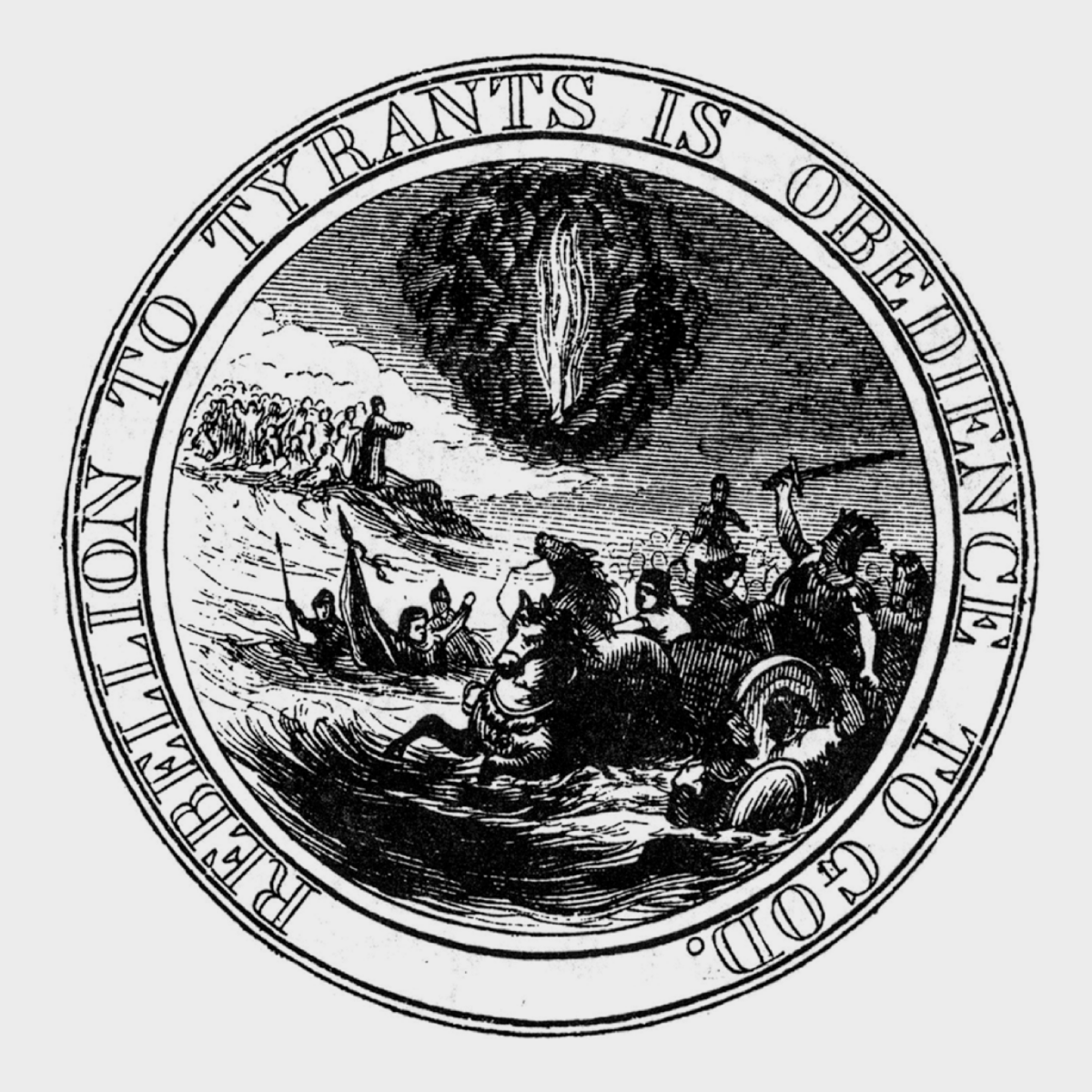
Benson John Lossing / Public Domain

Library of Congress, Rare Book and Special Collections Division
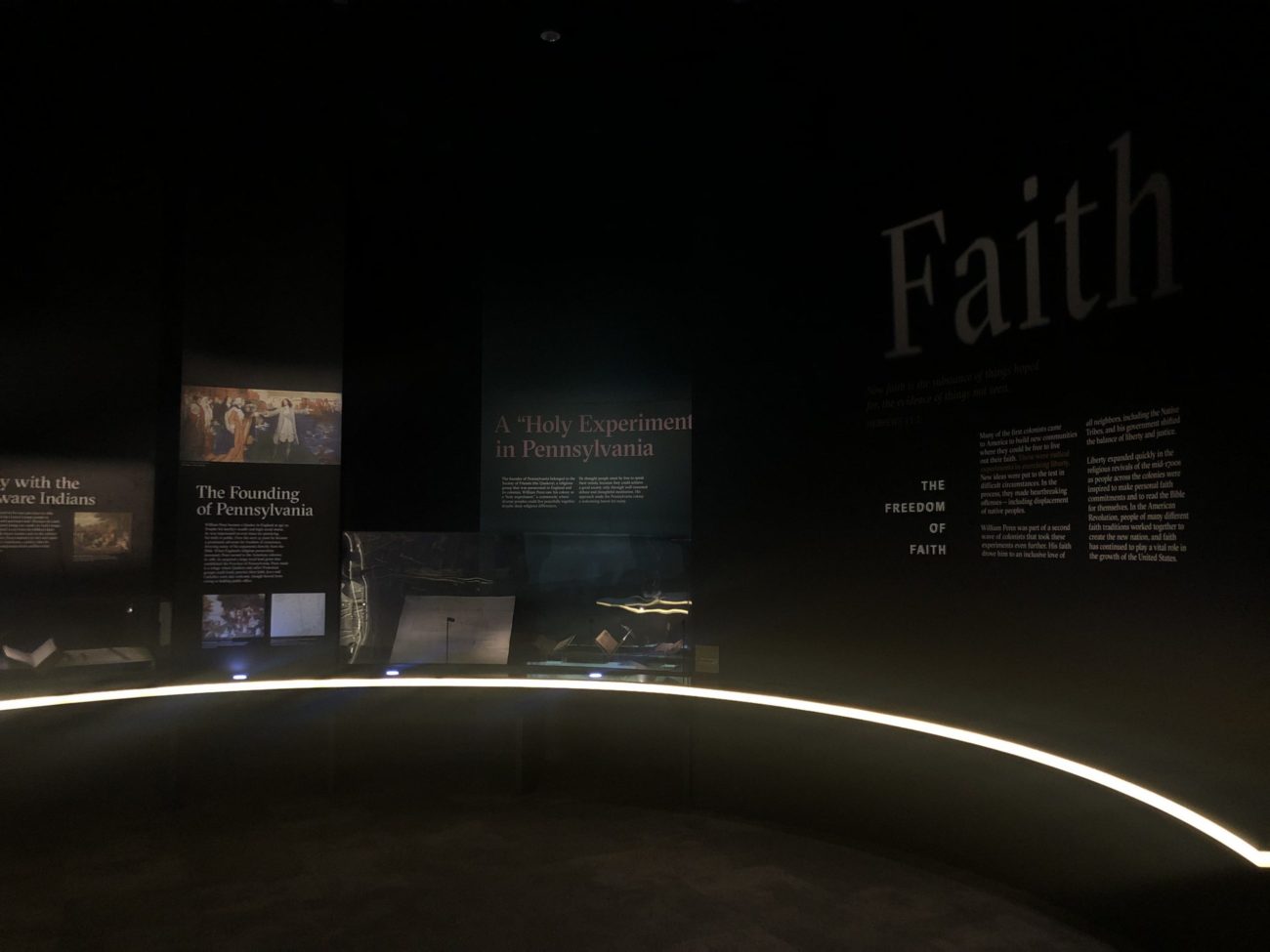
Many of the first colonists came to America to build new communities where they could be free to live out their faith. These were radical experiments in exercising liberty. New ideas were put to the test in difficult circumstances. In the process, they made heartbreaking offenses—including displacement of native peoples
William Penn was part of a second wave of colonists that took these experiments even further. His faith drove him to an inclusive love of all neighbors, including the local Lenape people, and his government shifted the balance of liberty and justice.
Liberty expanded quickly in the religious revivals of the mid-1700s as people across the colonies were inspired to make personal faith commitments and to read the Bible for themselves. In the American Revolution, people of many different faith traditions worked together to create the new nation, and faith has continued to play a vital role in the growth of the United States.
Now faith is the substance of things hoped for, the evidence of things not seen.
Hebrews 11:1
Jump To
Exhibit
The founder of Pennsylvania belonged to the Society of Friends (the Quakers), a religious group that was persecuted in England and its colonies. William Penn saw his colony as a ‘‘holy experiment,’’ a community where diverse peoples could live peacefully together despite deep religious differences.
He thought people must be free to speak their minds because they could achieve a good society only through well-reasoned debate and thoughtful meditation. His approach made the Pennsylvania colony a welcoming haven for many.
You have no lamp collections from A ‘‘Holy Experiment’’ in Pennsylvania
William Penn became a Quaker in England at age 22. Despite his family’s wealth and his social status, he was imprisoned several times fo practicing his faith in public. Over the next 15 years he became a prominent advocate for freedom of conscience, drawing many of his arguments directly from the Bible. When England’s religious persecution increased, Penn turned to the American colonies. In 1681, he acquired a large royal land grant that established the Province of Pennsylvania. Penn made it a refuge where Quakers and other Protestant groups could freely practice their faith. Jews and Catholics were also welcome, though barred from voting or holding public office.
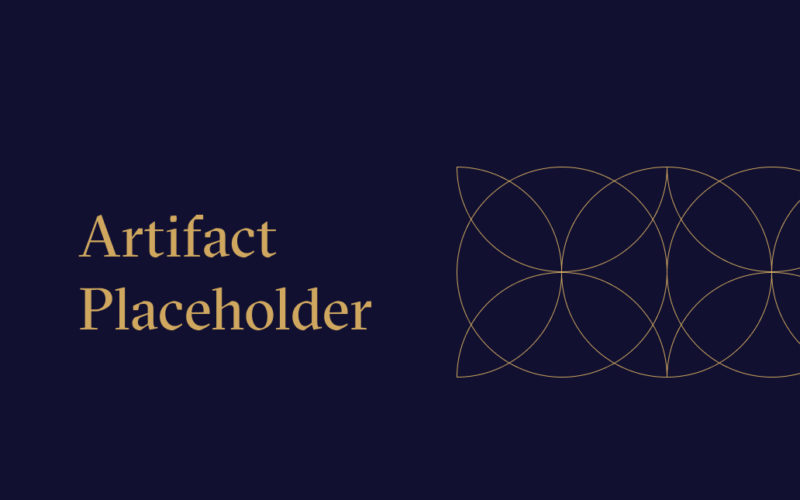
Credit: Brian Hunt & Pennsylvania Capitol Preservation Committee
Penn's Vision, ca. 1906, Violet Oakley
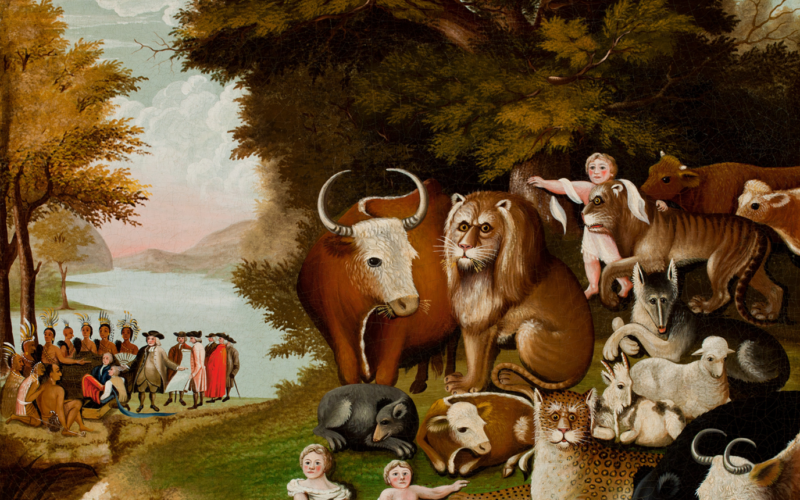
Worcester Art Museum, Massachusetts, USA / Bridgeman Images
The Peaceable Kingdom, ca. 1883, Edward Hicks
This painting depict Pennsylvania allegorically as a fulfillment of the biblical prophet Isaiah’s vision of the reign of the Messiah, who will bring justice and peace to the world.
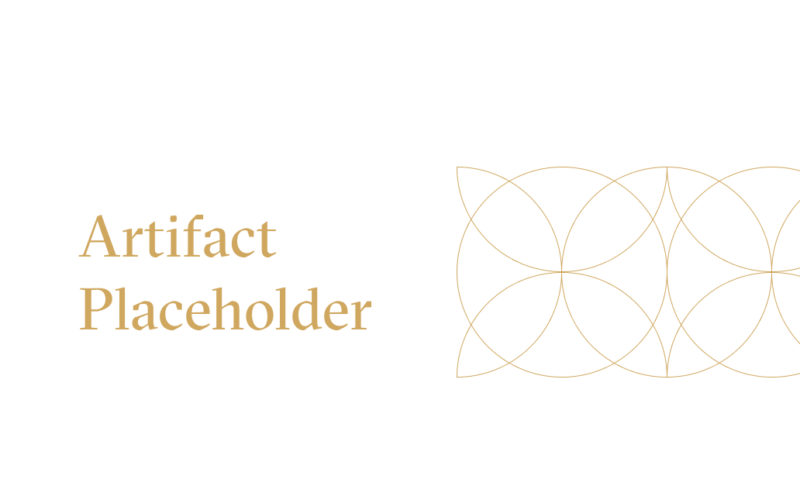
Quaker & Special Collections, Haverford College, Haverford, PA
A map of some of the South and Eastbounds of Pennsylvania in America, being Party Inhabited, 1681, John Thornton
This map depicts land that became the colony of Pennsylvania. It was created for William Penn so he could survey the area from England.
You have no lamp collections from The Founding of Pennsylvania
William Penn arrived in his new province in 1682 and soon met with the Lenni-Lenape people to negotiate treaties and purchase land. Because his faith taught that all human beings are made in God’s image, Penn was determined to act from the biblical ideal of brotherly love. In these treaties and in the colony’s founding documents, Penn insisted on faith and equal treatment of Native Americans, a policy that for decades spared Pennsylvania from conflicts that beset other colonies.

Pennsylvania Academy of the Fine Arts, Gift of Mrs. Sarah. Harrison (The Joseph Harrison, Jr. Collection)
Penn's Treaty with the Indians, 1771-72, Benjamin West
This painting depicts Penn’s legendary Great Treaty of Friendship entered into with Chief Tamanend and the Lenni-Lenape People under the mighty elm tree at Shackamaxom in 1683.
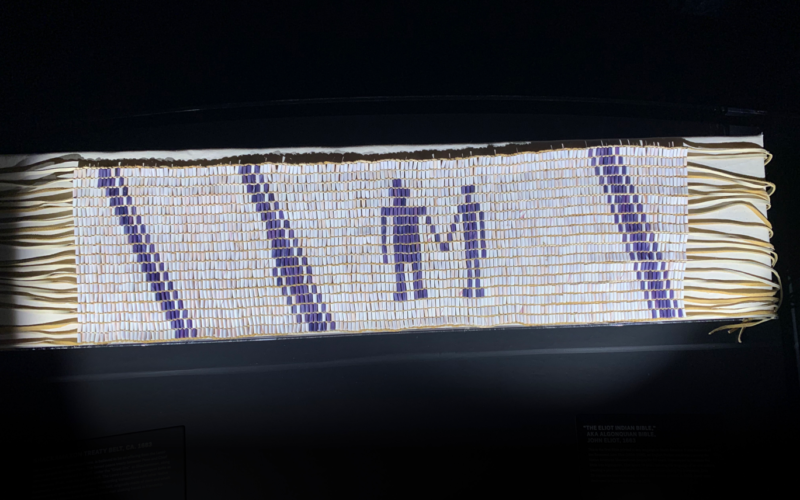
Shackamaxon Treaty Belt, ca. 1683
You have no lamp collections from Treaty with the Delaware Indians
Penn developed his theories of government while in prison as a religious dissenter. He saw, too, how the Quaker pursuit of a direct personal connection with God requires freedom of conscience and of religious practice. We see this background in his first “Frame of Government” in 1682. Unusual for its time, it declared that all people who believe in God and are committed to living peacefully together are protected from religious persecution and are free to practice their chosen faith. This constitution also guaranteed a free press, trial by jury, and other civil rights. Many of his ideas were incorporated a century later into the Declaration of Independence and the U.S. Constitution. Thomas Jefferson called Penn “the greatest lawgiver the world has produced.”

Brian Hunt & Pennsylvania Capitol Preservation Committee
William Penn as Law-Giver, 1927, Violet Oakley
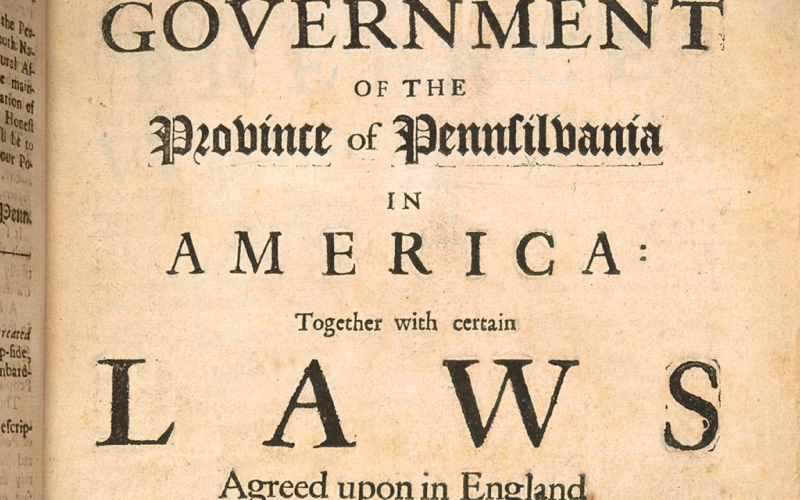
GRANGER
The Frame of the Government of the Province of Pennsilvania in America, 1682, William Penn
William Penn drafted this document as an early constitution for Pennsylvania. Its preface references several biblical passages.

Smithsonian American Art Museum, Museum purchase through the Robert Tyler Davis Memorial Fund
William Penn, Student at Christ Church, Oxford, ca. 1902–1906, Violet Oakley
In this mural study, William Penn sits in his study at Oxford University with an open Bible and gazes at an orb of light, which is likely meant to represent the light of God.
You have no lamp collections from Pennsylvania’s Constitution
Exhibit
In the mid-1700s, an unprecedented religious revival swept through the American colonies and shaped the national character. George Whitefield was the most prominent leader of this movement, which became known as the Great Awakening. He and other traveling preachers proclaimed a message of personal conversion, based on the Bible’s teaching. They preached that—whether exalted or humble—every person could experience a direct relationship with God.
With dramatic delivery, Whitefield and other revivalists appealed to the hearts and minds of their hearers. By emphasizing individual commitment over traditional church practices, the Great Awakening threatened established religious orders, creating a kind of spiritual democracy that spilled into social and political life. It also created a shared sense of American identity among the colonies.
George Whitefield dazzled crowds with his powerful voice and lively presentation of the Bible. He grew up in England and began his ministry there, but found his greatest fame in America, visiting all thirteen colonies, traveling thousands of miles (mostly on horseback), and delivering thousands of sermons—often two or three a day. He preached that each person must experience a “new birth.” He said such personal conversion was more important than attending church. Some ministers strongly objected to his “enthusiasm” and innovative methods and closed their churches to him. On such occasions, Whitefield would preach outdoors in town squares or country clearings, sometimes to tens of thousands of people.

Bolton Library & Museum Services, Bolton Council
George Whitefield Preaching in Bolton, June 1750, 1863, Thomas Walley

Stephen Butler / Adobe Stock
The Marks of the New Birth, 1739 George Whitefield
George Whitefield delivered this sermon on the nature of conversion as a spiritual “new birth” characterized by a supernaturally influenced redirection in thinking and living.

Library of Congress
Second Street North from Market St. with Christ Church – Philadelphia, 1800, William Russell Birch
In 1739, George Whitefield preached to thousands from the balcony of Philadelphia’s Old Courthouse and Town Hall at Second and Market Streets, pictured in the foreground of this engraving.
You have no lamp collections from The Rev. George Whitefield
The revivals appealed to people from every background. Men and women, rich and poor, African Americans, Native Americans, new settlers—all came, sometimes from great distances, to hear preachers expound on the Bible’s message of salvation and perhaps to experience a “new birth.” When they returned home, they would spread the word to their neighbors and continue studying and memorizing the Bible themselves. Teachings and themes from the revivals soon touched every aspect of colonial life. More and more people became familiar with the Bible, to the extent that it became the “moral grammar” of the day. It was the commonly accepted source for finding principles and practicalities of life together—private and public.

Rischgitz / Stringer / Hulton Archive via Getty Images
Frontispiece of the King James I Bible,1611
As an English translation of the Bible, commissioned by James I of England, the Authorized Version or King James Bible is the most celebrated and historically influential book in the English-speaking world.
You have no lamp collections from The People's Book
America’s clergy wanted all to read the Bible for themselves. That meant everyone had to be able to read. In colonial primary schools, students learned to read and write by copying and reciting biblical stories. Colleges like Harvard (1636) and Yale (1701) were established to prepare young men for Christian ministry and civic leadership. During the Great Awakening, clergymen founded several more schools that paired classical learning with biblical insights and their newfound spiritual experience. These new colleges included Princeton (1746), Brown (1764), Rutgers (1766), and Dartmouth (1769). Many of their graduates would later participate in the American Revolution and help frame the U.S. Constitution.

Presbyterian Historical Society, Presbyterian Church, Philadelphia, Pennsylvania, USA
The Original Log College Building, 19th-century representation, Henry M. Snyder
The Log College, founded in 1727 by Rev. William Tennent, Sr., was the first theological seminary for Presbyterians in America. Graduates became leading ministers in the Great Awakening.

Princeton University Archives, Department of Rare Books and Special Collections, Princeton University Library
Aula Nassovica [Nassau Hall], 1760
The College of New Jersey, now known as Princeton University, was founded in 1746 to train ministers in the classics and the Bible.
You have no lamp collections from The Bible and Education
Exhibit
In the years leading up to the Revolution, the Bible was a constant presence in public debates about America’s future. Loyalists and Patriots alike turned to the Bible for guidance and support for their positions. Both sides found in the Bible a source of spiritual strength and resolve. In pulpits and on battlefields, ministers delivered sermons on biblical stories of courage and justice. When peace came, the new nation continued to look to the Bible for purpose, direction, and moral standards. Most Founders believed that the republic’s survival depended on virtuous citizens who embraced biblical values.
You have no lamp collections from Igniting a New Nation
As Americans wrestled with the ethics of rebelling against the king, they turned to the Bible for guidance. Loyalists, who strongly opposed American independence, cited passages like 1 Peter 2:17, “Fear God. Honor the King,” and Romans 13:1, “be subject unto the higher powers.” Patriot ministers assured their congregations that these admonitions did not apply to tyrannical kings and governments. The apostle Paul himself, they said, allowed for lawful resistance to tyranny. To rally colonists for armed revolt, they quoted passages like Galatians 5:1: “Stand fast therefore in the liberty wherewith Christ hath made us free.”
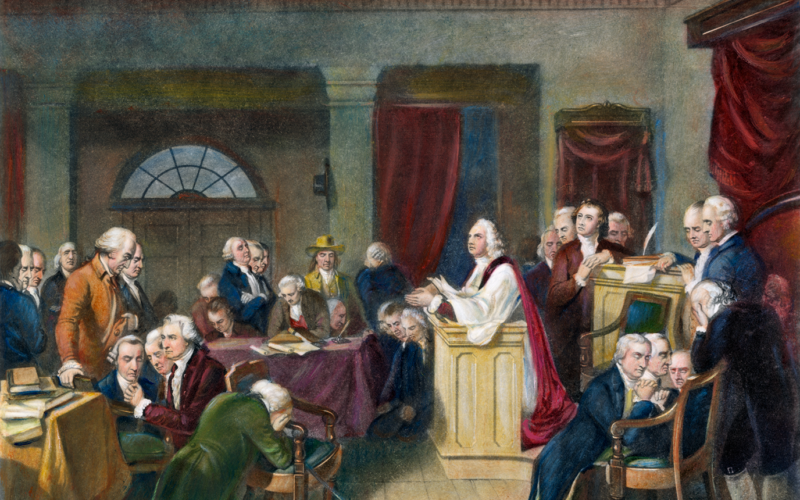
GRANGER
The first prayer in Congress, 1848, T. H. Matteson

The Trustees of the British Museum
The yankie doodles intrenchments near Boston 1776, 1776
This satirical cartoon criticizes the Patriot cause, implying that the American Revolution was inspired by Puritan and Presbyterian religious fanaticism of England’s previous Civil War.

Christ Church, Philadelphia
Book of Common Prayer, 1766
After Congress wrote the Declaration of Independence, parish leaders at Christ Church decided to replace traditional prayers for the king in worship with new prayers for the Congress.
You have no lamp collections from From Resistance to Revolution
Besides Patriots and Loyalists, the American colonies had a number of pacifists, as well as others who favored nonviolent resistance and political protest. For all these passionately held beliefs, the Bible offered wisdom and guidance, though it was often applied in conflicting ways. During the war itself, many on all sides drew comfort and strength from the Psalms. Patriots found support in Bible stories of combat against overwhelming odds, such as David and Goliath (1 Samuel 17). They often compared their experience to that of the enslaved Israelites who escaped the tyranny of Pharaoh (Exodus 1–14), even casting George Washington as a new Moses, a leader chosen by God to take them to a land of liberty.

Watercolor once in possession of Edward W. Richardson
Gostelowe Standard No. 10 Armed Resistance, c. 1776

Henry Alexander Ogden / Public Domain
James Caldwell at the Battle of Springfield, ca. 1890, Henry Alexander Ogden
James Caldwell, a Presbyterian minister and Army chaplain, distributes Bibles on the battlefield to soldiers fighting in the American Revolution.
You have no lamp collections from The Bible in War
Once freedom was won, how would it be sustained? The American Founders agreed that public liberty depended on private virtue—and that virtue was sustained by religion. This understanding grew from their reading of history and of classical and contemporary philosophers, as well as from the Bible. Even free-thinking Founders like Benjamin Franklin and Thomas Jefferson held that vice bred tyranny and that virtue was essential for lasting liberty. Most Americans believed that the new republic depended on people who were morally and ethically informed by the Bible. Virtue, faith, and liberty were seen as inseparable to sustain the new government. These sentiments were encouraged by public actions like declarations of national days of fasting and prayer and national days of thanksgiving, and by appointing chaplains for legislatures and the military.
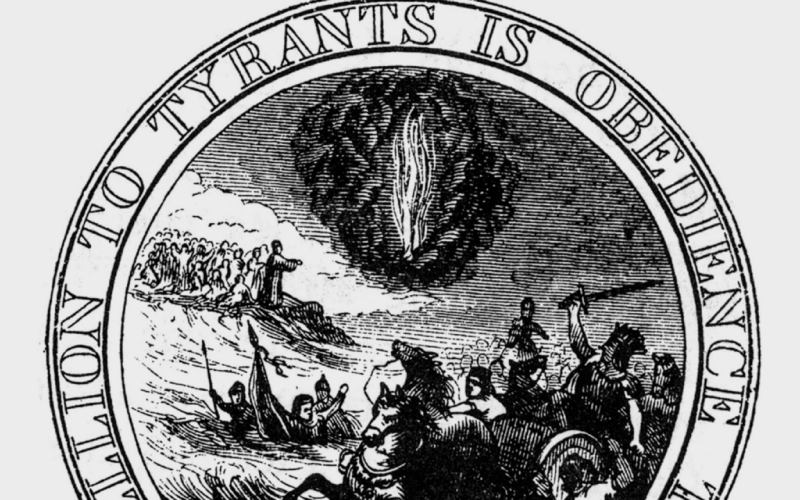
Benson John Lossing / Public Domain
Benjamin Franklin's design for the reverse of the Great Seal of the United States, 1856, Benson John Lossing
Seal portraying the biblical story of Exodus

Library of Congress, Rare Book and Special Collections Division
Congressional Proclamation, March 20, 1779, signed by John Jay and Charles Thomson
Congressional proclamation of day of public fasting and thanksgiving
You have no lamp collections from A Virtuous Republic
Exhibit
Religious liberty as a foundational principle of government is a distinctly American innovation. The first successful experiments in exercising religious liberty date to colonial reformers like Roger Williams, William Penn, and Cecil Calvert (Lord Baltimore). By the beginning of the American Revolution, several states had established certain degrees of religious liberty. With the 1791 ratification of the First Amendment to the U.S. Constitution, religious liberty became a national commitment.
The resulting guarantee of freedom of conscience and religious practice as well as the exclusion of an official national church were historically unprecedented. These principles have resonated throughout American life and global culture, unleashing generations of reformers, many animated by faith, who advocate for liberty and justice in seeking the common good.
Congress shall make no law respecting an establishment of religion, or prohibiting the free exercise thereof; or abridging the freedom of speech, or of the press; or the right of the people peaceably to assemble, and to petition the government for a redress of grievances.
Faith Definition Goes Here